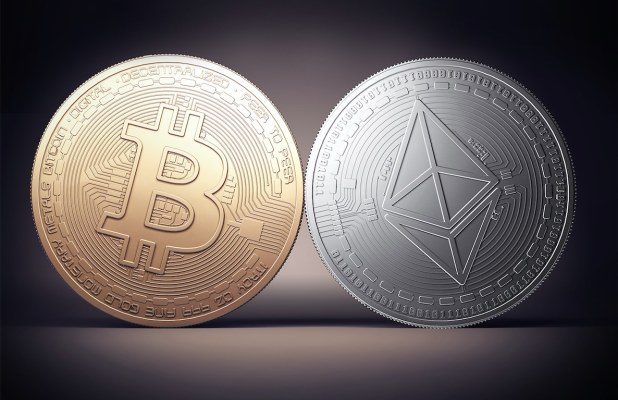Discussion Notes
By: Abdul-Hakeem Ajijola
The intention behind this paper is to stimulate a National conversation to address the issues relating to Cryptocurrencies and Block-Chain Technology.
My understanding is that:
- Money is a “trusted intermediary of value”be it commodities, cowries, gold, paper, plastic or digital (virtual).
- A cryptocurrency (or crypto currency) is a digital asset designed to work as a MEDIUM of exchange that uses cryptographyto secure its transactions, to control the creation of additional units, and to verify the transfer of assets.[1]
- Block-chain Technology is a digital triple ledger system that facilitates the recording and transfer information chronologically and publicly. Triple ledgers include the traditional credit and debit components, but has an added receipt component which is a cryptographic “signed” acknowledgement, like a finger print. This “signed” acknowledgement is open to all to inspect, and this openness provides the public verification which bestows the “trust” element.
BitCoin is one of the first decentralized cryptocurrencies, based on Block-chain technology. BitCoin was created in 2009, allegedly by Satoshi Nakamoto, whose real identity remains unclear. According to CoinMarketCap, as at 04 January 2018, there are 1,385 Cryptocurrencies across 7,503 Markets[2].
At its heart, Block-chain, and therefore cryptocurrencies such as BitCoin, are ledgers, that are just a technological extension of ordinary ledger system, as used by book-keepers over the centuries. BitCoin has been prominently featured in the news recently as a leading manifestation of Block-Chain adoption, and is presented as a new iteration of “Money/ Currency.” Notably:
Richard Quest in an 01 December 2017 CNN broadcast indicated “The fact that BitCoin prices roared up to over $11,000 and then just as quickly fell back to $9,300 in a matter of hours shows all the hallmarks of pure speculation. Money is being invested purely on the possibility of making more money because other investors are pouring in and pushing the price higher. This is different from stocks where the price is led by the earnings of the company involved, dividends and other tangible financial measures.[3]”
The Economist in its publication titled “Greater fool theory: The BitCoin bubble” states that “There may be good reasons for buying BitCoin. But the dominant reason at the moment is that it is rising in price….
…..People are not buying BitCoin because they intend to use it in their daily lives. Currencies need to have a steady price if they are to be a medium of exchange. Buyers do not want to exchange a token that might jump sharply in price the next day; sellers do not want to receive a token that might plunge in price…….
…..People are buying BitCoin because they expect other people to buy it from them at a higher price; the definition of the greater fool theory……
…..When the crash comes, and it cannot be too far away, it will be dramatic…….[4]”
I concur that BitCoin is highly overvalued and likely to crash, however, I cannot say when. That said, we witnessed the dot com, housing/ mortgage and Oil price bubbles that have burst over the past few years, and the resulting economic challenges. They did not imply that the underlying structure, societal needs, and in this case technology, would not last. Likewise, with BitCoin, when its bubble bursts, the underlying Block-chain technology is likely to continue revolutionising many aspects of society.
As the tactical, and often pedestrian, discussions rage over BitCoin, I worry that we may miss the strategic importance of the fundamental new opportunities Block-Chain Technology presents to us as listed in the infographic “30 Non-Financial Use Cases of Block-Chain Technology.[5]” These include improved financial and nonfinancial automated processes, identity management, contact management, smart contracts, data management, elections, government and organisational governance. The issues include virtual (crypto) currencies that provide their own unit of account and payment systems; New models of financial intermediation including Financial technology (FinTech or fintech); and the application of artificial intelligence and leveraging large volumes of data by self-learning computers to automatically make decisions. How will we morally account for decisions, that may not meet our religious, traditional or moral standards, made by autonomous systems?
From a contemporary “western” perspective BitCoin is considered by many to be money because it is a trusted intermediary of value. Furthermore, it is a portable, acceptable and acceptable store of value. Importantly, it is a trusted medium of exchange and some may, mischievously, say scarce like paper money. Paper money and BitCoin are not backed by any commodity, since the disengagement of the gold standard during the 20th Century.
Cryptocurrencies also empower us to develop:
- Settlement systems that are compatible, compliant in conformity with indigenous perspective, as well as in
- Cryptocurrency-based microfinance for the poor and underserved.
Some general concerns relating to BitCoin, at this time, include:
- BitCoin is the acknowledged leader of, over 1,000 cryptocurrencies, and it had first mover advantage. However, this does not automatically translate into optimal long-term viability.
- My understanding is that BitCoin was not initially designed as primarily an investment vehicle, but to be a medium of exchange[6]. As Nigeria’s economy improves then the need to leverage BitCoin’s capacity to pay for goods and services may open up.
- I believe BitCoin has significant, self-imposed and apparently arbitrary created, challenges such as its overall mining limit of 21 million units and length of its Block-Chain which slows certain functions. The original developers placed a limit of 1MB of data per BitCoin block, which in effect means that 1 MB of data is allowed every 10 minutes, leading to a growing backlog of, and slowing, confirmation of transactions as well as increased transaction fees. As internet speeds rise and more people come on board, the impact of these limitations will become more significant.
- As a proof of concept, BitCoin has demonstrated that it works. However, my sense is that one of the newer cryptocurrencies such as Ethereum, Ripple, Litecoin, IOTA, Cardano and others that resolves, by design, some of BitCoins challenges, and has higher institutional backing, from either Big Banks, Major Regulators and/ or Global Technology Firms, will more likely emerge dominant. Institutional support may subsequently provide recourse, such as insurance, in the event of the loss of a user’s private crypto keys.
- Most financial regulators have been wary of BitCoin and other Cryptocurrencies. However, some are now taking steps towards mainstreaming and possibly regulating Cryptocurrencies. This maybe difficult as most global Cryptocurrencies inherently circumvent government regulators. Several Governments are actively seeking or developing alternatives to BitCoin. The Central Bank of Nigeria, as the local financial regulator, has been cautious, but has not hindered the use of Cryptocurrencies. However, it has also not provided definitive leadership and guidance to the public. Basically, as a Nigerian, if you lose your Cryptocurrency assets you are on your own.
- As far as I know, users have no recourse if they lose their Cryptocurrency wallet and especially the private crypto keys, which would likely reside on their computer or phone. If you lose your phone, or computer hard disk crashes, the crypto-money is there but you have no access to it. Money that cannot be accessed, or to otherwise used, has no value.
- The BitCoin bubble, as manifest by the incredible rate of increase in assigned value without any “apparent” underlying economic logic, seems be driven by “emotion” provides significant cause for concern. I believe that:
- We should lower or expectation and not expect to get rich with BitCoin, or any emerging technology by itself, without an underlying value proposition. They present opportunities that are high risk, albeit with high rewards, but remember that the probabilities are that more will fail than succeed.
- It is always important to be wary of anything that sounds too good to be true, or that seems to disobey basic economic rules.
- We can trade BitCoin and other Cryptocurrencies, in much the same manner as our local money changers trade currencies, or as is done in formal forex trading. The morally repugnant aspect seems to creep in when we speculatively invest in BitCoin to get usury levels of higher returns on the same BitCoin at the expense of others.
- The bottom line is that cryptocurrencies are here to stay, and we must exploit the opportunities that Block-Chain technology presents. However, BitCoin is the biggest bubble so far, and my sense is that it is unsustainable, and therefore BitCoin should be avoided, for now.
There are also valid concerns about the use of cryptocurrencies, and BitCoin in particular, to facilitate criminals, and illegal activity. This is a cause for concern across the spectrum of all currencies and moral codes. Conversations will likely continue, on the acceptability of BitCoin as money in our indigenous context. However, we may be able to quickly achieve a consensus norm that BitCoin, or other similar Block-Chain based infrastructures are acceptable as payment networks. More importantly, we should avoid unbridled speculation types of investment in BitCoin, or other cryptocurrencies, because we believe that others will enter and push the price higher. Such speculation is, arguably, a classic case of a pyramid scheme, which goes against our indigenous values, religious principles and moral codes. However, I am inclined to accept it as a transactional medium, when the need arises and remain cautious on the speculative aspects.
I advocate that we must focus on the “trusted intermediary” nature of BitCoin and other cryptocurrency networks, and avoid the questionable “pyramid investment opportunities.” We must seek to legitimately exploit the underlying BLOCK-CHAIN technology, and this is the direction the world is going. The world is adopting Block-Chain technology across a broad swathe of activities and sectors. Thus, let us not lose sight of the larger opportunities by unduly focussing on the short-term prospects of BitCoin.
I pray that the above will help to stimulate the thinking and conversations among those that are more enlightened, to address these and other contemporary challenges in the best interest of Nigerians and humanity in general.
May the Almighty reward our efforts and guide us all aright.

Abdul-Hakeem Ajijola (AhA) is a Commissioner at Global Commission on the Stability of Cyberspace





























